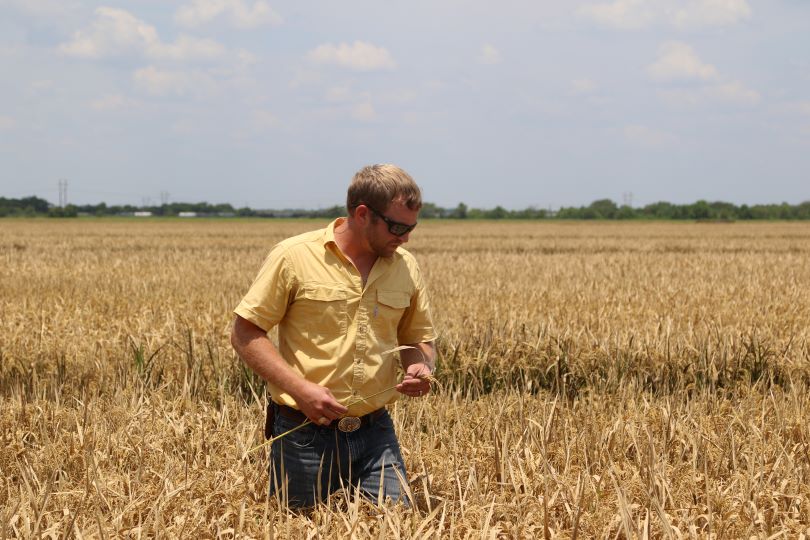By Jennifer Dorsett
Field Editor
The COVID-19 pandemic has led to changes in daily routines for millions of Texas citizens, but farmers and ranchers are still doing what they’ve always done.
“Not much has changed, honestly,” fifth-generation Matagorda County rice farmer Scott Savage said. “Just because there’s a pandemic going on doesn’t mean I can stop working.”
That’s because the U.S. Department of Homeland Security has considered agriculture a critical and essential industry.
It’s planting season in the Coastal Prairie region of Texas, which has Savage in the field for long hours each day.
When isolation efforts to contain COVID-19 began, his main concern was the ability to obtain water for his fields from the Lower Colorado River Authority (LCRA).
“We asked point-blank if they were absolutely certain they could deliver water to us while their employees were working remotely,” Savage, a Texas Farm Bureau member, said. “If, for some reason, they couldn’t release water for a week or two, the rice would die and that would be it for us.”
But a few years ago, LCRA installed electronic pumps, water gates and other equipment, which allows farmers to get water now.
“If the employees still had to go raise and lower the gates manually and they got sick or weren’t able to do that, we wouldn’t have any water down here,” he said. “So, if it weren’t for technology, we might be in a completely different situation.”
Water is crucial at every stage of growing rice, but especially when it’s first planted. Savage estimated he’s planted about 75 percent of this year’s crop.
So far, Savage hasn’t had any issues obtaining parts from the local tractor dealership, which was also deemed an “essential business” by local authorities and remains open. But he hasn’t needed to call a service technician yet.
“That could get tricky,” he said. “We’re just going to hope anything that goes wrong will continue to be the little things we can fix ourselves.”
A bigger concern for Savage is the lack of consumer awareness he’s seen on social media during the pandemic.
“I’ve seen posts that say things like ‘we have plenty of food in the U.S., so why do farmers need to stay in the field?’ But what those people don’t realize is that we’re growing next year’s food. We’ll always need food for tomorrow, and that’s what we’re out here doing,” Savage said. “There’s a lot of unknowns right now, but one this is for certain—farmers are going to the field every day to continue growing our food.”


What is going to happen if we can’t get a seasonal workers due to the broader closure. I have over the years of farming have never been able to keep employees on my farm to help with planting and harvesting, and everything in between. As farmers we all know the importance of needing help, but impossible to keep.